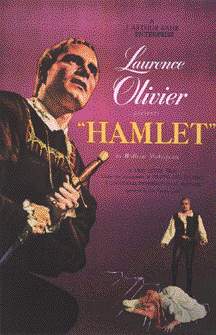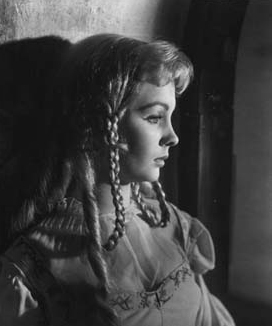|
 尼寺へ行け!
尼寺へ行け!
Act 3, Scene 1 A room in the castle.
HAMLET Ay, truly; for the power of beauty will sooner transform honesty from what it is to a bawd than the force of honesty can translate beauty into his likeness: this was sometime a paradox, but now the time gives it proof. I did love you once. OPHELIA Indeed, my lord, you made me believe so. HAMLET You should not have believed me ;for virtue cannot so inoculate our old stock but we shall relish of it: I loved you not. OPHELIA I was the more deceived. HAMLET Get thee to a nunnery: why wouldst thou be a breeder of sinners? I am myself indifferent honest; but yet I could accuse me of such things that it were better my mother had not borne me: I am very proud, revengeful, ambitious, with more offences at my beck than I have thoughts to put them in, imagination to give them shape, or time to act them in. What should such fellows as I do crawling between earth and heaven? We are arrant knaves, all; believe none of us. Go thy ways to a nunnery. Where's your father? OPHELIA At home, my lord. HAMLET Let the doors be shut upon him, that he may play the fool no where but in's own house. Farewell. OPHELIA O, help him, you sweet heavens! HAMLET If thou dost marry, I'll give thee this plague for thy dowry: be thou as chaste as ice, as pure as snow, thou shalt not escape calumny. Get thee to a nunnery, go: farewell. Or, if thou wilt needs marry, marry a fool; for wise men know well enough what monsters you make of them. To a nunnery, go, and quickly too. Farewell. OPHELIA O heavenly powers, restore him! HAMLET I have heard of your paintings too, well enough; God has given you one face, and you make yourselves another: you jig, you amble, and you lisp, and nick-name God's creatures, and make your wantonness your ignorance. Go to, I'll no more on't; it hath made me mad. I say, we will have no more marriages: those that are married already, all but one, shall live; the rest shall keep as they are. To a nunnery, go. 尼寺へ行け。え?罪人を生みたいのか? 俺だってかなり誠実なつもりだが、 おふくろが生んでくれなければよかったと 自分を責めることだってある。 自惚れ強く、復讐を狙う野心家で、 あまりに多くの罪を抱え込んでいる。 (中略) お前が氷のように貞節で、雪のように純潔であろうと、 禍からは逃れられんぞ。 尼寺へ行け。さようなら。 河合祥一郎訳
ハムレット 第三幕第一場
|

| ここでハムレットはオフィーリアに 「尼寺に行け!Get thee to a nunnery」という。 尼寺の場、とも、オフィーリアいじめの場とも言う。((^_^;;) ところで小田島雄志さんはこのシーンから、 「自分のシェークスピアが始まった」といっている。
普通は俺を信じろ、という。 そうあろうとしてそうなる。 (あるいは、そうなったと信じる) 小田島さんは言う、
クローディアスとポローニアスが盗聴しているのを、
ハ、ハ〜と, ここ「で気がついた、とされてるわけだが、 (honest=正直、貞淑の二重の意味) 他での盗聴はすべて台詞になっているのに、 ここではその台詞がない以上、 「気がついていたとはいえないだろう」、と小田島雄志さん。 河合祥一郎さんの読み方としては、 これは、ハムレットは知らない、観客は知っている、ということを利用した、 劇的皮肉「ドラマチック・アイロニー」の場面、という。 「ハムレットは気づいていないにも関わらず、 立ち聞きしている連中のみならず観客をぎくりとさせる。 ひょっとして知っているのではないかという劇的効果である、と なるほど。 なお、 松岡和子さんによれば現実に隠れていると気づかないとしても オフィーリアが自分を"noble mind"といったとたんに その言葉のうらに親父がいるな、と、ハムレットの心が冷えるのだ、という、 オフィーリアはポローニアスに気位を高く持てとお説教されているわけで。 なお、尼寺=売春宿説をとるAdamsやDoverの説があるが、 Jenkins他は否定。河合祥一郎さんもそれは否定している。 |

Hamlet (1948) Jean Simmons(1929〜)
http://www.leoyan.com/global-language.com/ENFOLDED/YOUNG/ Pre-Raphaelite Painting and Nineteenth-Century Realism ”the visual arts in the eighteenth and nineteenth centuries one of the most dramatic and painful episodes in Hamlet” The Hamlet-Ophelia story was of particular interest to Rossetti and his circle (Walter Deverell, John Everett Millais, and Arthur Hughes in the British Museum). |

Dante Gabriel Rossetti. Hamlet and Ophelia, 1858.
http://www.legends.dm.net/shakespeare/hamlet.html

